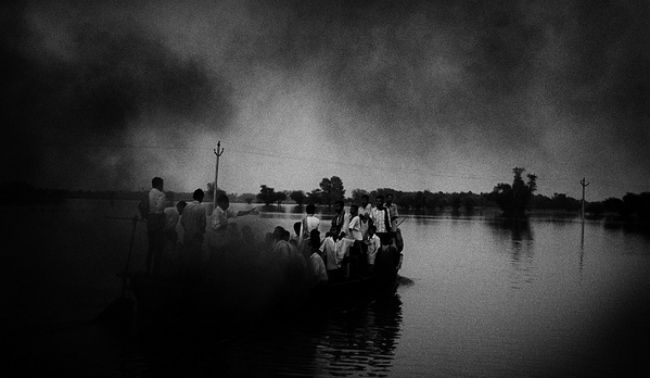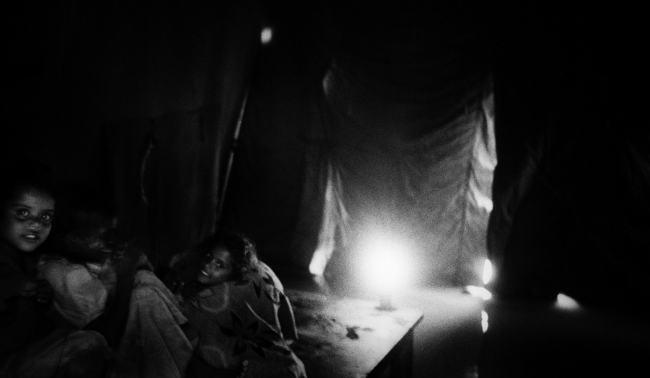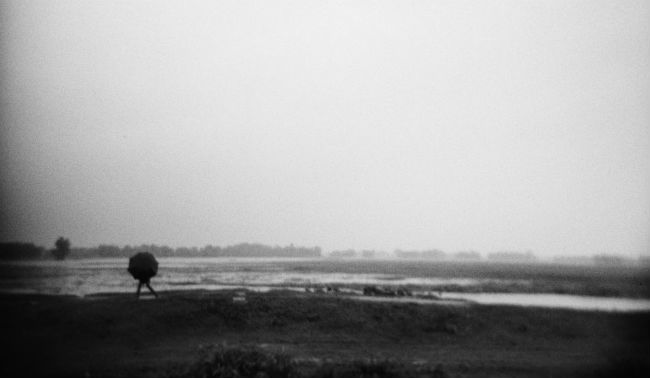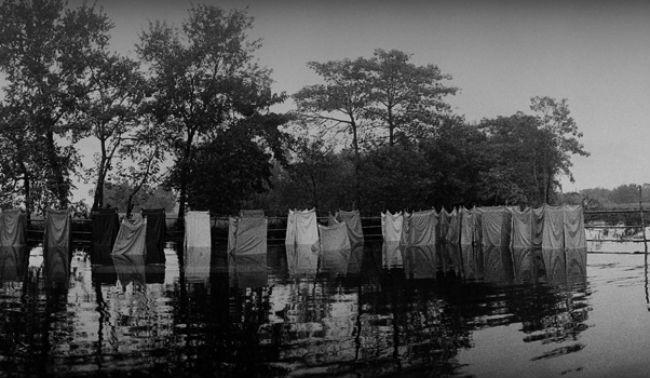My morning ritual is this: wake up, run, and come home for a strong cup of coffee while listening to NPR news. This past week, I heard a novelist speaking about a book on one of my fav morning radio programs, and he dropped the phrase “climate refugee.” I realized as he continued talking, I didn’t really know what the term meant. So, off Googling I went.
My research led to a bit of a 101 crash-course into the plight of individuals forced to leave their native places due to climate change. Here's what I discovered:

Photo: Balazas Gardi | People in flood water
A climate refugee is an individual who has been forced to move because of an environmental disaster (think flooding, hurricanes, cyclones, fired, tornadoes… you get the idea). Natural disasters result from both incremental and fast ecological shifts that cause droughts, sea level rise, and the frequent occurrence of extreme weather. As a result of these environmental changes, mass global migration and border conflicts are increasing.
Often, climate refugees are internal migrants, or people moving elsewhere within their home country. Climate refugees could be rural or coastal residents who have to migrate to urban areas. While a move within your own country might not seem like too big a deal, consider this: skills such as herding and farming are not going to be useful in urban areas. So, it means once you move, work is hard to find, in addition to not having the same social networks you did in your hometown.

Photo: Balazas Gardi/Flickr | Men walking through flood water
The United Nations thinks that there are roughly 25 million climate refugees - and this number is expected to double over the next five years (i.e.: less time than it takes to make it through grade school). And it won’t stop there - the Red Cross believes that as many as 1 billion people will be displaced by climate change over the next four decades - so, yep, a huge increase over the course of our lifetimes.

Photo: Balazas Gardi/Flickr | Girls sitting on an elevated bed in a refugee camp tent flooded by knee-deep water
Climate refugees face a lot of problems - one of which is not being protected by international laws. They experience greater political risks than other refugees who are able to receive protection under international law. Unlike “traditional” refugees, individuals who are climate refugees have a greater likelihood of being sent back to the homelands or forced into a refugee camp.

Photo: Balazas Gardi/Flickr | A man walking with an umbrella
Au contraire mon ami. It’s a problem now as millions of climate refugees exist today. The United Nations estimates that more people are displaced due to climate change than war! If this stat doesn’t make it clear that the plight of climate refugees is a serious, current problem, I am not sure what will.

Photo: Balazas Gardi/Flickr | Flooded makeshift latrines
Whatever is causing global warming - be it natural or man-made (*cough* man-made), the fact of the matter is climate change is increasing the number of climate refugees. This is a BIG concern, as the increase in climate refugees will not only endanger the lives of individuals affected, but it could have massive effects for humanity as a whole.
The biggest thing for me in researching climate refugees boils down to this: climate change isn’t simply this remote thing that scientists will simply work out. It’s a problem of global scale - and we all need to pay attention to the human costs that climate change creates.
Forced movement of people due to climate change has increased border conflicts and political instability - so much so that the Pentagon now thinks that climate change is a US national security risk. Now is the time to take action.